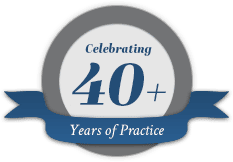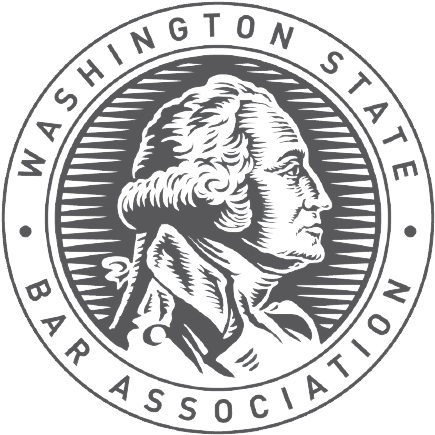Losing a family member is one of life’s most difficult experiences. If someone’s negligence or intentional act caused your loved one’s death, you can do something about it.
No amount of money can ever replace your loved one. However you deserve to be compensated for your loss and your loved one should be honored by you acting to hold the wrongdoers accountable.
What Is a Wrongful Death?
Wrongful Death is taking the life of a person when it is caused by the wrongful act, neglect, or default of another. The Washington statute governing wrongful death actions is RCW 4.20.010
Negligence in any setting can provide the basis for a wrongful death lawsuit. Negligence is a failure to take reasonable care resulting in injury or death to another. Negligence can occur in many situations including but not limited to:
- Vehicle crashes
- Defective products
- Medical malpractice
- Construction accidents
- Dog Bites
- Burn accidents
Is Wrongful Death Also a Crime?
Wrongful death can be a crime but it doesn’t have to be.
- If the wrongful death is the result of a crime then that crime should be handled by the criminal court system. Criminal actions are filed by a prosecutor. Examples of criminal wrongful death include murder and negligent homicide. Even if the negligent person faces criminal charges — whether or not he or she is convicted — a wrongful death action can also be filed in the civil courts of Washington State.
- Wrongful death civil actions caused by the wrongful act, neglect, or default of another are filed in civil court RCW4.20.010. If you have a wrongful death lawsuit, it is you who needs to be sure it gets filed.
Who Can File a Wrongful Death Lawsuit?
The statute sets out complex rules that allow certain people to file a wrongful death action. Different rules apply to adult and child deaths.
Wrongful death of an adult:
- The personal representative of the decedent’s estate may bring the action for the estate and for the benefit of “the wife, husband, state registered domestic partner, child or children, including stepchildren” of the decedent.
- If none of these people survives the decedent, the action benefits “parents, sisters, or brothers, who may be dependent upon the deceased person for support, and who are resident within the United States at the time of his or her death.”
Wrongful death of a child under age 18:
- A parent who “regularly contributed to the support of his or her minor child” may bring a wrongful death action or join an action filed by the personal representative of the estate.
- Marital status is not a factor.
- If only one parent files, the other parent must be notified.
- RCW 4.16.080
What Is the Compensation for a Wrongful Death?
Washington wrongful death law provides for several different types of damages (compensation) in a wrongful death action. RCW 4.20.020
- The personal representative on behalf of the estate may recover for funeral expenses, medical and hospital costs prior to death, lost net income, survival actions, and pain and suffering of the decedent. Expert witness are often used to establish these amounts
- Any amounts recovered by the personal representative that are not for payment of estate expenses will be paid to the beneficiaries under the statute.
- Family members who qualify as dependent beneficiaries under the law may recover. These beneficiaries relied on the decedent for support. They may recover for their own pain and suffering, loss of care, loss of companionship, and lost future financial support.
- In addition to damages for medical expenses, parents of a minor child may also recover for “the loss of love and companionship of the child and for injury to or destruction of the parent-child relationship.”
- Surviving spouses and domestic partners are entitled to loss of support and marital consortium.
For wrongful death cases, Washington applies a comparative negligence standard. If the decedent or any party to the lawsuit was partially at fault for the death, damages will be reduced by the percentage of fault. Comparative fault is negotiated as part of a settlement. If the case goes to trial, comparative negligence is determined by the court or jury. RCW4.22.070
Time Limitation for Wrongful Death Actions
Washington has a three-year time limit, called the statute of limitations (SOL) for filing a wrongful death action. RCW 4.16.080. If the case is not filed within three years after death, the ability to recover is likely lost. There are some very limited exceptions to the three-year rule.
The discovery rule may extend a statute of limitations deadline if beneficiaries could not reasonably discover that the death was wrongful.
Do I Have a Good Wrongful Death Case?
An experienced wrongful death attorney in Seattle can tell you whether you have a good wrongful death case. Proving a case involves investigation, evaluation, and application of the wrongful death laws and the survivor statutes.
A successful wrongful death case requires that these three elements be shown.
- Death
- Caused by negligence (breach of a duty) of another person
- Resulting in damages
Should I Hire a Wrongful Death Attorney or DIY?
A wrongful death claim is not a legal action that you should file or pursue on your own. If you are the personal representative of an estate or a family member of a person who died in an accident caused by someone else’s negligence, you should talk with an attorney who knows the Washington wrongful death law. You might learn something important. You don’t need to hire a Washington wrongful death lawyer to speak with one.
Wrongful Death Claims are Worth More with a Lawyer.
- Not because lawyers are cheap, but rather because insurance companies are cheap and don’t want to pay you a fair amount.
- Most of a good recovery is worth more than no recovery at all.
- Contingent legal fees make getting a good wrongful death lawyer possible. Contingent fees level the playing field.










